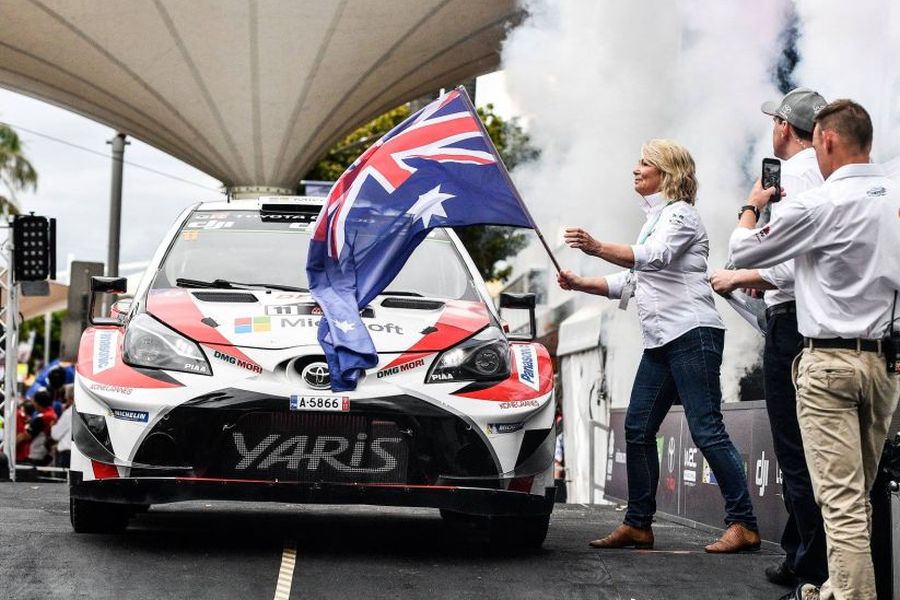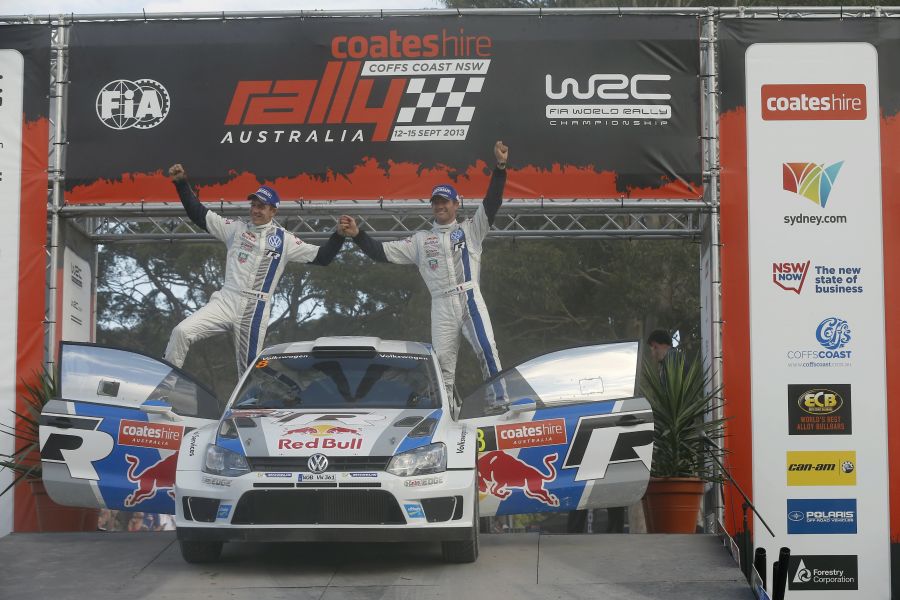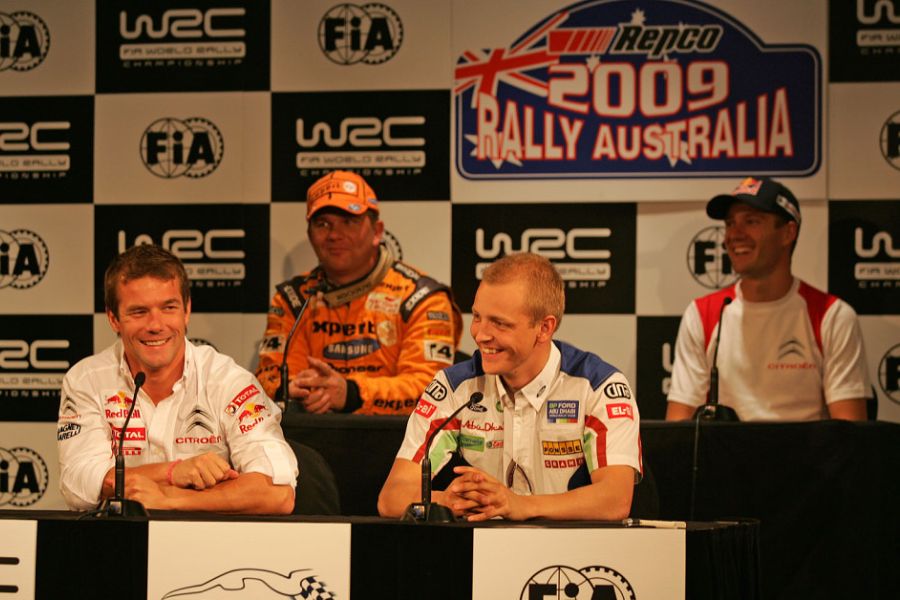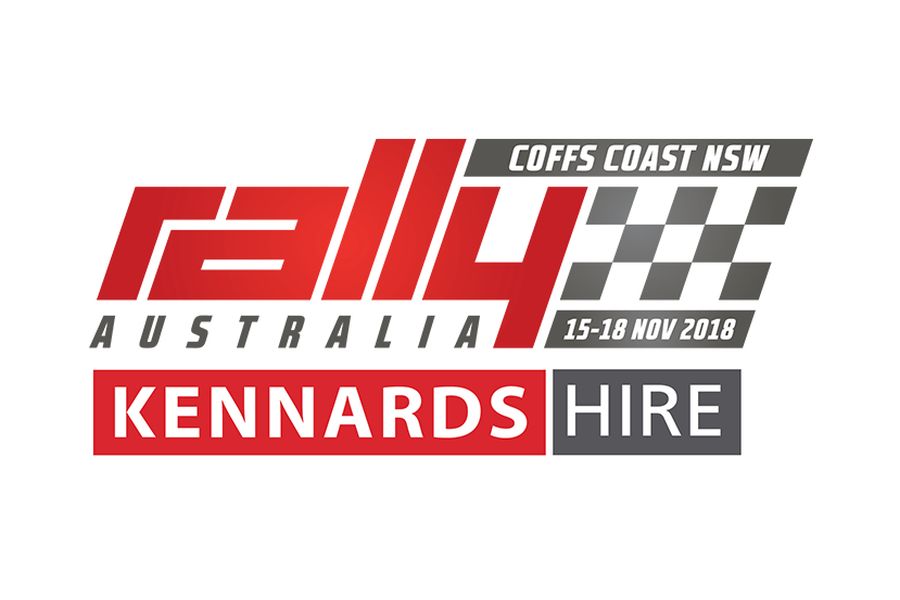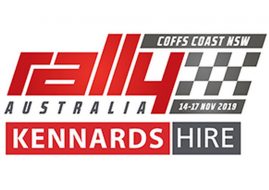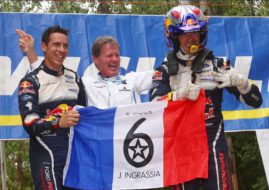Rally Australia - thirty years of the premium world rallying 'down under'
Rally Australia is the greatest Australian rally event that is a part of the FIA World Rally Championship since 1989. The gravel rally event was located in Perth, Western Australia until 2006, then relocated to New South Wales in 2006, first to Kingscliff in 2009 and then to Coffs Harbour in 2011, where it is still located today.
The event was voted as the Rally of the Year by the WRC teams in 1995, 1999 and 2000.
The record holder with four wins at Rally Australia is Juha Kankkunen. Two other Finns, Marcus Gronholm and Mikko Hirvonen, triumphed three times in Australia. Among the active drivers, Sebastien Ogier was the winner three times.
The first Rally Australia was the WRC candidate event
Despite a long history of rallying in Australia, the first ever Australian round of the FIA World Rally Championship was held in 1989. Prior to that, the first ever Rally Australia took place in Western Australia in November 1988 as the WRC candidate event and a round of the Asia-Pacific Rally Championship.
There were just a few entries from Europe in the 1st Rally Australia. Mazda Rally Team Europe was represented by Hannu Mikkola and Ingvar Carlsson. The later one won the event in a Mazda 323 4WD, ahead of New Zealand’ rally legend Petter ‘Possum’ Bourne and Australian champion Greg Carr.
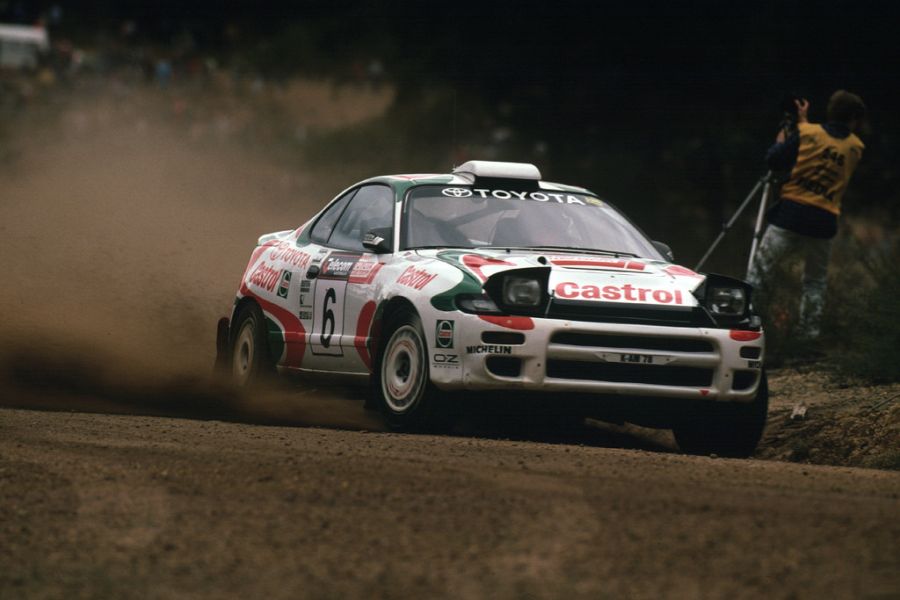
Juha Kannkunen’s victorious Toyota Celica in 1993
Four wins for Finnish ace Juha Kankkunen
In 1989, the Rally Australia became the fixture on the WRC calendar. The event took place in September and it was the tenth round on the 13-round season. Juha Kankkunen and Kenneth Eriksson secured 1-2 victory for Toyota Team Europe, driving Toyota Celica GT-4, Markku Alen was third in a Lancia Delta Integrale.
Juha Kankkunen and his navigator Juha Piironen clinched two more wins with Lancia in 1990 and 1991. Kankkunen scored his fourth win in 1993, together with navigator Nicky Grist in a Toyota Celica GT-Four. Between those Kankkunen’s wins, Didier Auriol triumphed in 1992 in a Lancia Delta HF Integrale.
The 1993 event was marred by a fatal accident in which Rodger Freeth lost a life, a navigator of Possum Bourne in factory-entered Subaru Legacy RS.
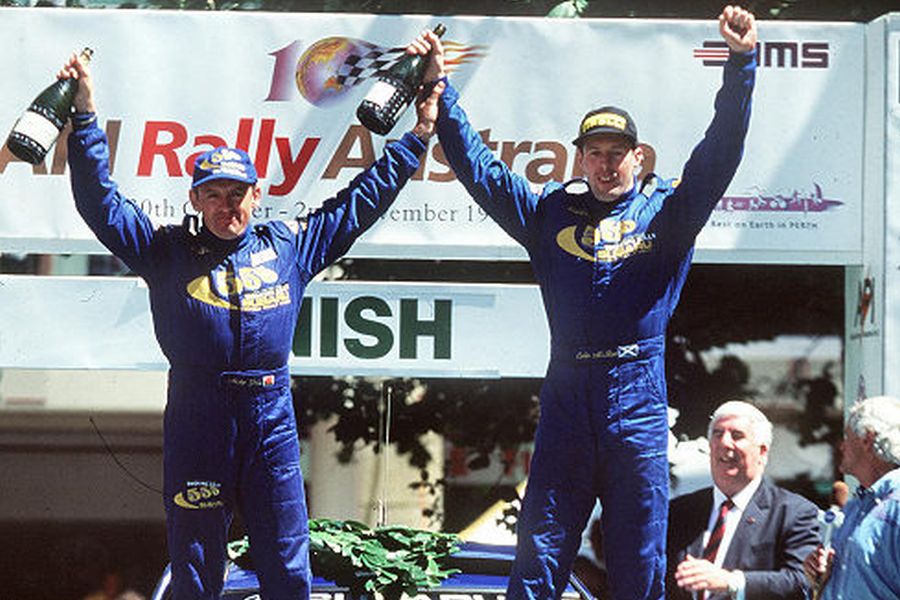
Nicky Grist and Colin McRae at 1997 Rally Australia
Seven consecutive wins for Japanese manufacturers
Colin McRae scored his first win in Australia in 1994, sharing a Subaru Impreza 555 with Derek Ringer. His second win followed in 1997 when he was sharing a Subaru Impreza WRC with Nicky Grist. Between those two McRae’s wins, Kenneth Eriksson and Tommi Makinen gave two wins to Mitsubishi Ralliart team.
Makinen was the winner one more time in 1998, driving a Mitsubishi Lancer Evo V. The streak of seven consecutive wins for Japanese manufacturers ended in 1999 when Richard Burns won the rally in a Subaru Impreza.
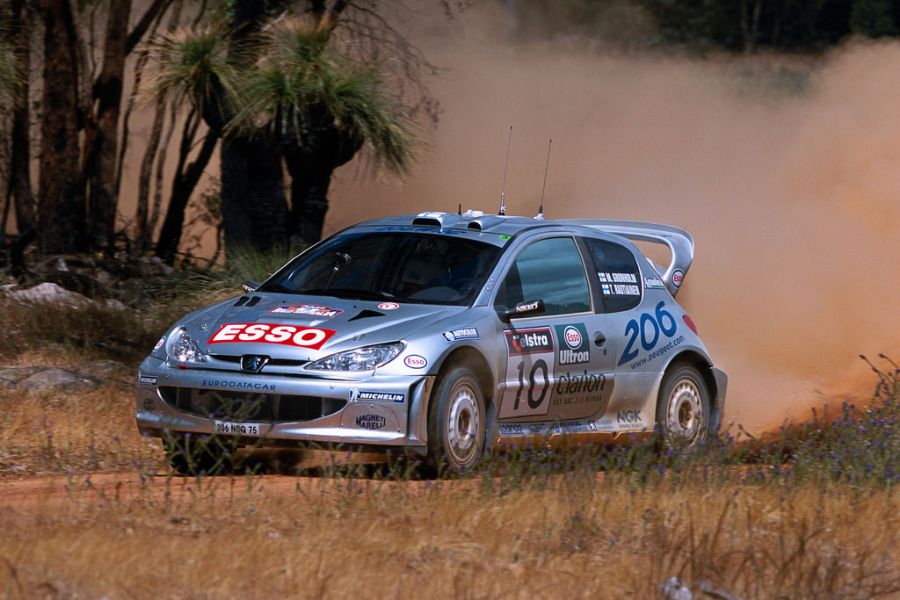
Marcus Gronholm’s #10 Peugeot 206 WRC at 2000 Rally Australia
Three wins in a row for Marcus Gronholm
Marcus Gronholm was a driver who dominated at Rally Australia from 2000 to 2002, taking three consecutive wins, all three driving a Peugeot 206 WRC. Petter Solberg triumphed in Australian in 2003, in a year when he became the world champion with Subaru.
A year later, Sebastien Loeb took his first WRC title and also the first and only win in Australia, driving a Citroen Xsara WRC. In 2004, the Rally Australia was the 16th and the final round of the championship but the title fight was already decided before the last round.
Francois Duval gave another win to Citroen in 2005 and then Mikko Hirvonen was the winner in 2006 in a Ford Focus RS WRC.
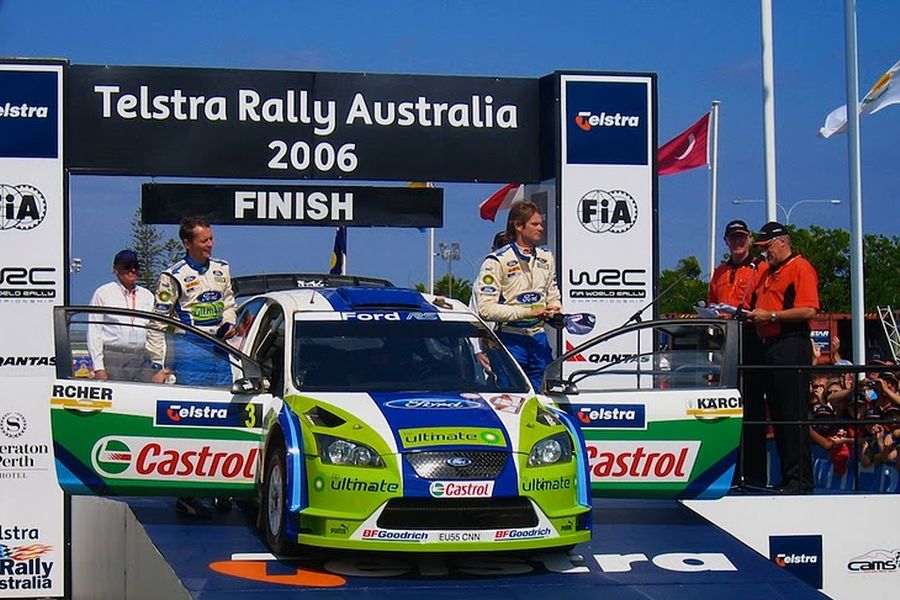
The 2006 Rally Australia was the last event in Western Australia
Moving a rally from Western Australia to New South Wales
The 2006 Rally Australia was the final one that took place in Western Australia. The Western Australia Tourism Commision had to cancel the event for 2007 after the ruling Australian Labor Party decided to withdraw funding.
The plan was to move a rally to Queensland in 2008 but it never became a reality. Then, in 2009, the Rally Australia has been moved to New South Wales, with a base in Kingscliff. The event was marked by great public protests, even effecting on a cancellation of two special stages. The winner of a rally was Mikko Hirvonen for the second time.
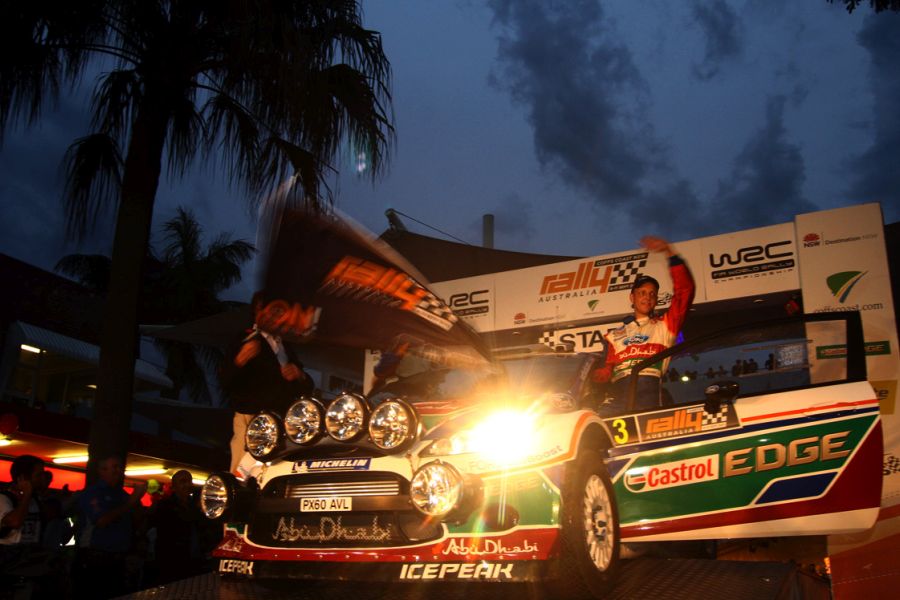
Mikko Hirvonen was the winner of the first Rally Australia at Coffs Harbour
A new base in Coffs Harbour since 2011
The public protests caused further changes and the rally has been moved to Coffs Harbour in 2011. Mikko Hirvonen scored his third win in that event, driving a Ford Fiesta RS WRC.
In 2010 and 2012, the Rally Australia wasn’t held due to rotation system on a WRC calendar, so Rally Australia alternated its place with the Rally New Zealand.
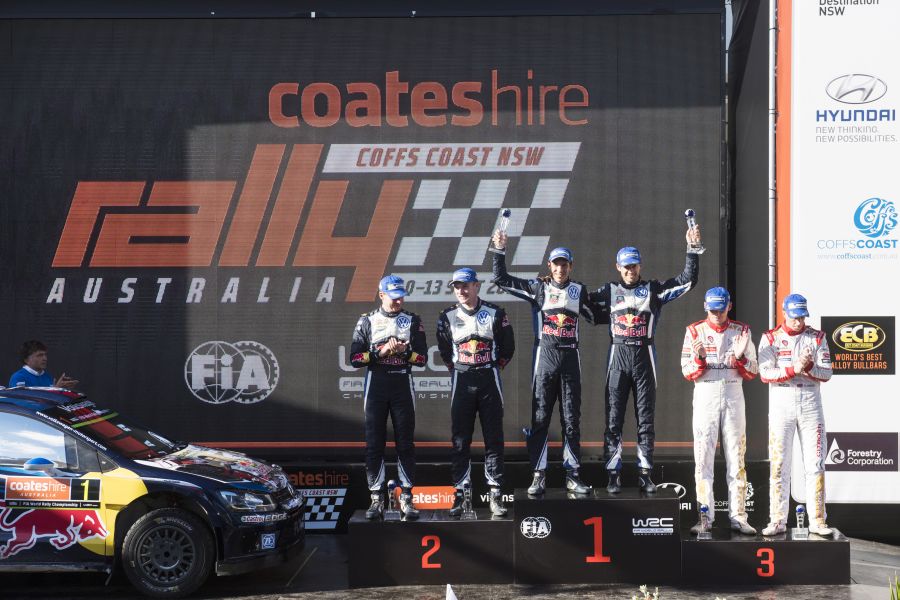
Sebastien Ogier and Julien Ingrassia on the top of the podium in 2015
Three consecutive wins for Sebastien Ogier
In 2013, an era of Sebastien Ogier started, both in the World Rally Championship and at Rally Australia. He won five championship titles in a row while in Australia he won three times in a row, all three in a Volkswagen Polo R WRC.
In 2016, Andreas Mikkelsen gave the fourth consecutive win to Volkswagen Motorsport. In 2017, when an era of new turbo WRC cars started, Thierry Neuville clinched a victory in a Hyundai i20 Coupe WRC. In 2018, Jari-Matti Latvala (Toyota) scored his first win in Australia and 18th WRC victory in a career.
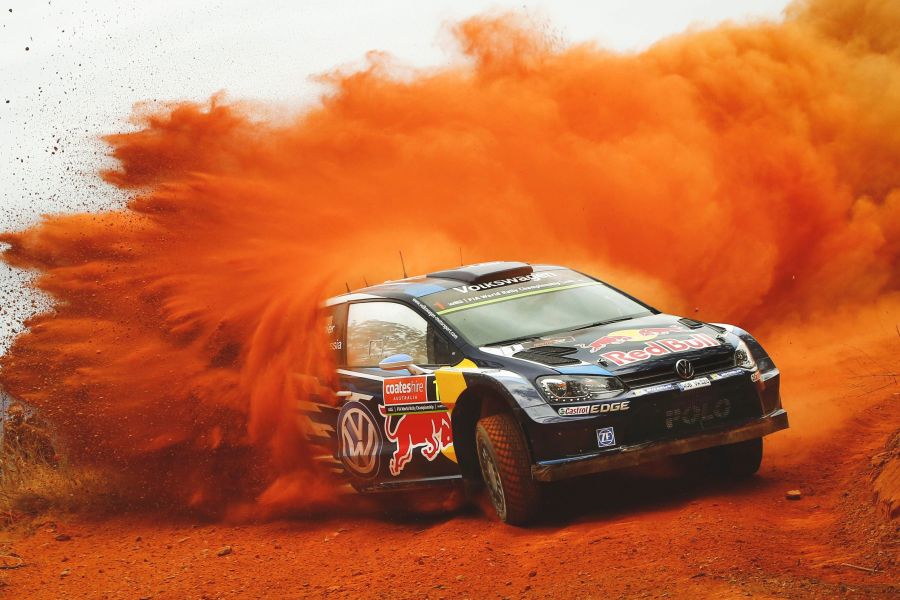
Gravel roads in Australia are fast and smooth
Photos: Rally Australia, Red Bull Content Pool: @world, McKlein, Jaanus Ree, Greg Roslon, Dan Vrubel/ewrc-results.com,


